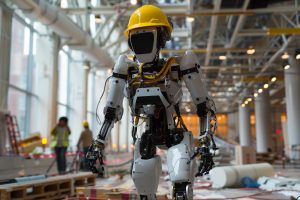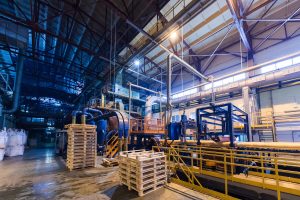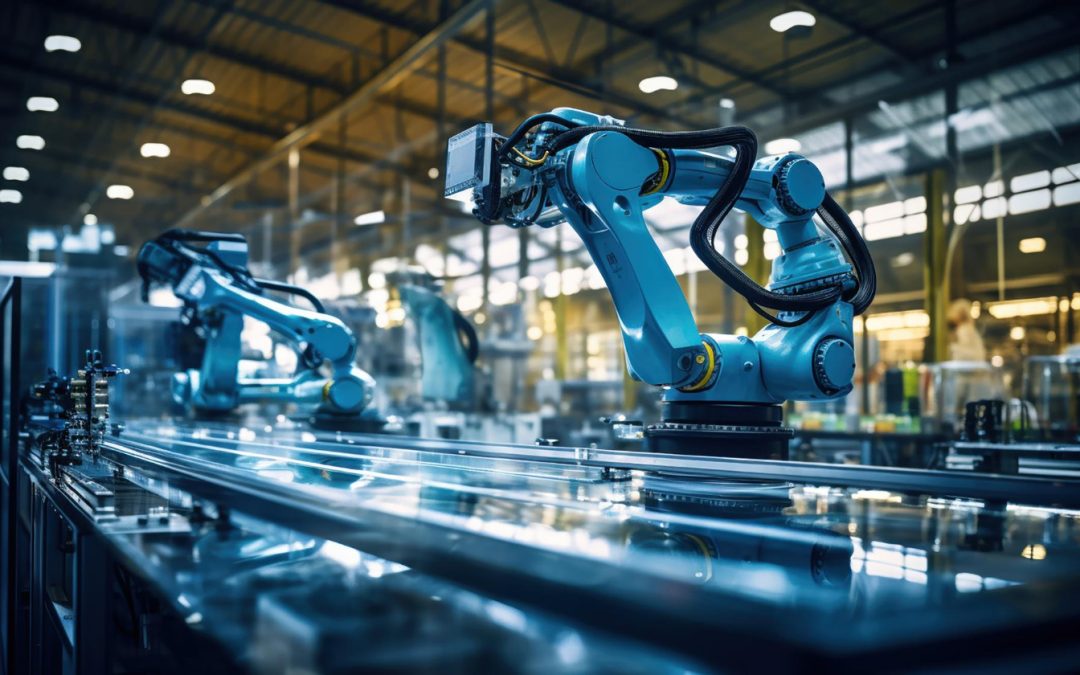Over the past few years, the global economy has been shifted significantly due to unprecedented events such as the Covid-19 virus, UK’s exit from the European Union – Brexit, and natural calamities such as Tsunami, etc. These incidents have created a lot of problems for industrial producers.
Despite these obstacles, there is a bright side: the future of industrial automation in the UK. Industrial automation is thus a welcome opportunity through which companies in the UK can continue to operate and be profitable in the new circumstances.
The Current State of UK Manufacturing
In this work it is necessary to mention that the manufacturing industry in Britain plays an important role in the economy of the country. In 2022, it is the ninth largest in the world in terms of production and produces goods worth £183 billion.
However, the degree of adoption of industrial automation in the UK has seen a slowdown due to previous choices and recent disruptions in this area.
These include increases in the frequency and intensity of consumer demands, reduced workforce availability, and disruptions in supply chain management. These problems suggest that there is currently an urgent need to increase the use of industrial automation in the UK.
Benefits of Automation
Automation is a great way of increasing efficiency in manufacturing processes in a number of ways. Here are some key benefits:
Lower Operating Costs: The growing use of automated methods is expected because machines can handle mechanical functions more effectively than people.
Increased Product Quality: Automating brings an element of standardization in the manner in which tasks are handled hence minimizing errors.
Improved Consistency: More specialization and consistency is seen in the production process since machines do not have to vary each time they are used.

Emerging Technologies
There are several emerging technologies set to revolutionize industrial automation in the UK:
Robotics: Robots are capable of operating difficult assignments including welding, packing and assembly of parts with precision. Robots controlled by Artificial Intelligence can learn as can human beings improving its performance with time.
Internet of Things (IoT): Smart things and sensors help manufacturing systems to track the process which are in progress and help in doing maintenance and executing necessary changes ahead of time.
It also has the potential to help enhance safety in that it will be capable of identifying when a particular environment becomes unsafe.
Quantum Computing: Although quantum computing is still in its early stages, experts predict that it will be capable of solving specific problems at a much faster rate than regular computers.
This is because it will impact quite a number companies such as those in the production of pharmaceuticals and automotive industries.
5G Networks: 5G in terms of speed and stability will enable smooth and fast exchange of information between machines and systems in automated operations.
Challenges and Opportunities
However, it is important to note that obtaining the advantages does not come without some difficulties. One of the main disadvantages of using credit notes as a method of sale is the high costs associated with the initial setup which tend to affect new businesses.
Also, there concerns such as job automation, where machines end up replacing human personnel in tasks that they do continuously. But on the other hand, there are possibilities and horizons opening with the help of automation.
It is for this reason that, as many manual labor positions become increasingly automated, there is a push for professionals who are skilled in maintaining these systems. This change results in more high-tech and high-skill employment in areas such as technical, analytical and managerial competencies.
Based on information, majority of manufacturing functions — 50% of the lot — will be performed by robots by 2025, and integrated manufacturing sensors and automation plans will help businesses increase production by 15 percent.

Preparing for the Future of Industrial Automation
To fully harness the potential of the future of industrial automation in the UK must address several key factors:
Skills and Education: It is also recommended that both the government and other private institutions support education and training in industrial automation in the UK. This effort will ensure that there is adequate human resource developed and prepared to address new challenges.
Public Awareness: To achieve this goal at a micro level, the public needs to be educated about the benefits of industrial automation in the UK and this education process should start with the elimination of the misleading term robotic.
Some continue and argue that this will lead to layoffs when in reality it could lead to better job creation and innovation.
Investment: About the last plan, investors should notice that the expenses for automation at first levels could be comparatively high, but the results is cost reduction and productive rate improve. Promoting the machinery for investing in automation technology is therefore become inevitable in the sector
Conclusion
The future of industrial automation in the UK look bright. In light of this, it can be argued that by adopting new technologies the manufacturing sector can address existing challenges besides being able to unlock the next opportunities in the form of robotics technology, IoT, quantum computing and others.
According to the old and new generation manufacturing concepts, industrial automation in the UK will enhance manufacturing safety, efficiency and competitiveness.
As the UK pursues this path of transformation, it will lay a much-needed foundation for long-term prosperity, quality jobs and overall increased economic output.
